#abrahamic paganism
Text
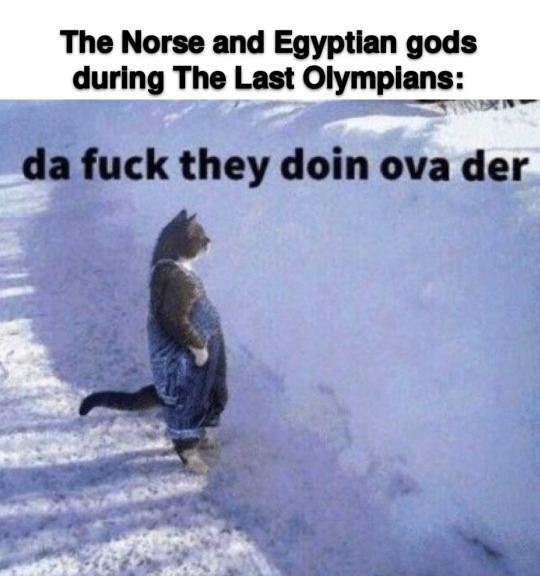
A shitty meme me and my brother talked into existence
#percy jackson#kane chronicles#magnus chase#i have since seen that all religions (pagan and abrahamic) are right-ish in the riordanverse?#i thought it was just the grecoromans; norse; and egyptian ones#i need to catch up on it
194 notes
·
View notes
Text
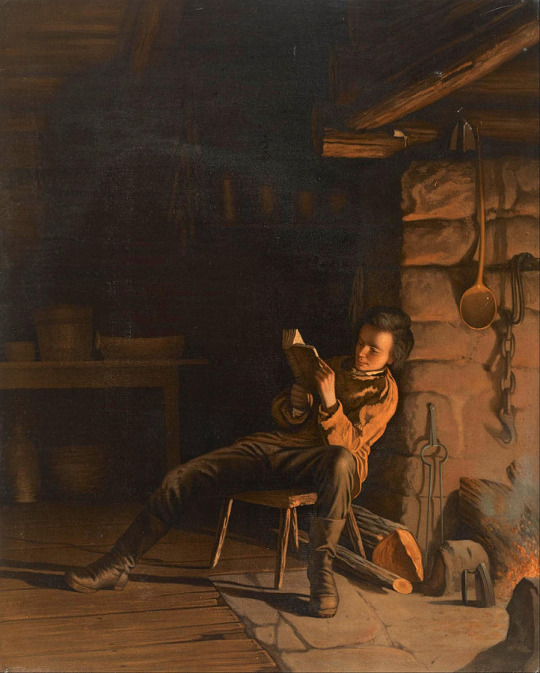
Jonathan Eastman Johnson (American, 1824–1906) • The Boyhood of Lincoln: An Evening in the Log Hut • 1868 • Smithsonian American Art Museum
#art#painting#fine art#art history#jonathan eastman johnson#american artist#american art#19th century american art#oil painting#historical painting#artist#painter#american painter#abraham lincoln#art blog#pagan sphinx art blog
35 notes
·
View notes
Text
Every Pagan Holiday

JANUARY
KALENDS
1st January
Origins: Ancient Greece/Rome
Observed by: Hellenic/Roman polytheists
Honouring Janus/Juno, first day of the Year. Kalends brought us the word 'calendar'.
ÞORRABLÓT (THORRABLÓT)
End of January/beginning of February
Origins: Iceland
Observed by: Heathens, Asatru
Midwinter Festival honouring Thor, usually by feasting and poetry.

FEBRUARY
IMBOLC
2nd February
Origins: Celtic polytheism /Ireland, as St. Brigid's Day
Observed by: Most neopagans, Wiccans, Druids, Asatru (as Charming of the Plow)
Imbolc is the most widely known and observed pagan holiday in the months of January and February. It falls at the beginning of spring/end of the winter for the Celtic peoples; marking the changing of the seasons, as most holidays do. St. Brigid is a Christianised form of or inspired by the Celtic fertility goddess Brigid who is celebrated on this day.
PARENTALIA
13th-21st February
Origins: Ancient Rome
Observed by: Greco-Roman polytheists
Translating to 'Ancestors Day', Parentalia is a nine-day celebration of deceased ancestors. Historically it was observed by feasting and making offerings and sacrifices to the dead and spirits of the underworld.
VÁLI'S BLOT
14th February
Origins: Old Norse
Observed by: Heathens, Asatru, Norse polytheists
Váli's Blot is considered by some Asatru to be the Norse equivalent of Valentine's Day but is widely acknowledged as a season changing festival. A day for marriage and celebrating with family and friends, and for remembrance of Váli, the son of Odin who defeated Höðr on this day.
LUPERCALIA
15th February
Origins: Ancient Rome
Observed by: Greco-Roman polytheists
Festival thought to honour a wolf who raised abandoned princes, celebrated originally by sacrificing goats to the gods, feasting, and, for fertility, nudity and fornication.
LESSER ELEUSINIAN MYSTERIES
17th-23rd February
Origins: Ancient Greece
Observed by: Hellenic polytheists
Initiation to the cult of Persephone and Demeter by sacrificing a pig. Prelude to Greater Mysteries, initiations held on these dates. Once completed, initiates could then move onto Greater Mysteries in the autumn.
ANTHESTERIA
27th February - 1st March 2021
Origins: Ancient Greece
Observed by: Hellenic polytheists
Athenian festivals dedicated to Dionysus and the dead. Held around the full moon in the month of Anthesterion, which in the Gregorian calendar this year roughly translates to 27th February.
THE DISTING/DÍSABLÓT
End of February/beginning of March
Origins: Uppsala, Sweden
Observed by: Heathens, Asatru, Norse polytheists
Celebration of Valkyries and other female spirits, called dísir. Sacrifices were made for a good harvest. Celebrated still by an annual market in Sweden.

MARCH
KALENDS
1st March
Origins: Ancient Greece/Rome
Observed by: Hellenic/Roman polytheists
Honouring the god Mars/Ares. Kalends brought us the word 'calendar'.
OSTARA/EARRACH
20th March
Origins: Anglo Saxon paganism, popularised as Ostara by Wicca
Observed by: Anglo Saxon Pagans, Wiccans, Neopagans, Druids (as Alba Eilir), Heathens (as Summer Finding), Ásatrú (as Sigrblót)
The northern hemisphere's vernal equinox, the word Ostara was introduced though Wicca and named for the goddess Eostre. Surprisingly unrelated to Easter in all but name, Ostara symbolises the beginning of spring. As a seasonal holiday it is widely celebrated by many different groups of pagans.
RAGNAR LODBROK'S DAY
28th March
Origins: Icelandic Sagas
Observed by: Ásatrú
Day of remembrance for Ragnar Lodbrok, Viking King of legend

APRIL
KALENDS/VENERALIA
1st April
Origins: Ancient Greece/Rome
Observed by: Hellenic/Roman polytheists
Celebration of the first of the month, this one honouring the goddess, Venus.
REMEMBRANCE FOR HAAKON SIGURDSSON
9th April
Origins: Norway, C9th
Observed by: Ásatrú
Day of remembrance for ruler of Norway who claimed lineage to Odin in the Icelandic Sagas.
WALPURGISNACHT
30th April
Origins: German Christianity, originally Saint Walpurga was known for banishing witches and other pests
Observed by: LaVeyan Satanists
Anton LaVey chose to celebrate this holiday as a follow up to the spring equinox and due to its past association with witchcraft.
HEXENNACHT (WITCHES' NIGHT)
30th April
Origins: German folklore, as Walpurgisnacht but witches were alleged to convene with the devil in this night
Observed by: Temple of Satan as 'a solemn holiday to honour those who were victimized by superstition'.

MAY
BEALTAINE/BELTANE
1st May
Origins: Celtic (Ireland/Scotland/Isle of Man)
Observed by: Wiccans, Neopagans, Celtic reconstructionist, Ásatrú/Heathens (as May Day)
One of the more well-known pagan festivals, Beltane is a festival of fire and the beginning of the summer. Also widely referred to as May Day, it is celebrated by lighting fires.
KALENDS
1st May
Origins: Ancient Greece/Rome
Observed by: Hellenic/Roman polytheists
Honouring the goddess Maia, for whom the month may have been named.
REMEMBRANCE FOR Guðröðr of Guðbrandsdál
9th May
Origins: C11 Norway, Icelandic Sagas
Observed by: Ásatrú, Norse, heathens
Guðröðr had his tongue removed by Óláfr for rebelling against violent conversion from Norse paganism to Christianity.

JUNE
KALENDS
1st June
Origins: Ancient Greece/Rome
Observed by: Hellenic/Roman polytheists
Anniversary of temples to Juno Moneta (protectress of money, her temple was where coins were made), Mars/Ares (God of war), and the Tempestates (goddesses of storms).
ARRHEPHORIA
3rd Skirophorion (translates to mid-June)
Origins: Ancient Greece
Observed by: Hellenic reconstructionist
Feast in celebration of Athena and fertility.
MIDSUMMER/SUMMER SOLSTICE
21st June
Origins: Agricultural holiday/longest day observed for centuries by many civilisations. Christianity can date to as early as C4th
Observed by: Wiccans/Germanic neopagans (as Litha), Asatru/Heathens, Druids (as Alban Hefin)
One of the main four holidays in the Wheel of the Year and popularised by Wiccans and neopagans as Litha which is taken from the Anglo-Saxon words for June/July, this is the longest day of the year and the middle point and sometimes considered the beginning of summer.

JULY
REMEMBRANCE FOR UNNR/AUD THE DEEP MINDED
9th July
Origins: C9th Iceland
Observed by: Ásatrú, Heathens, Norse reconstructionist
Aud was a traveller in the 9th century moving between Dublin, the Hebrides, Orkney, and finally Iceland following the deaths of her husband and son. This day is to honour her memory.
HERACLEIA
July/August
Origins: Ancient Greece
Observed by: Hellenic polytheists
Festival dedicated to Heracles the demigod and his death, involving feasting and celebration.

AUGUST
LUGHNASADH/LAMMAS
1st August
Origins: Celtic Britain (Ireland, Scotland, Isle of Man)
Observed by: Wiccans, Neopagans, Christians (as Lammas), Ásatrú (as Freyfaxi)
Named for the god Lugh, this festival is one of the Celtic harvest festivals and marks the beginning of the harvesting months. It was celebrated by climbing mountains, bull sacrifice, offerings, and feasting. Handfasting is commonplace with Wiccans in modern times.
REMEMBRANCE FOR REDBAD, KING OF THE FRISIANS
9th August
Origins: C7th Frisia (area of Germany/Netherlands)

SEPTEMBER
NOUMENIA
8th September
Origins: Ancient Greece
Observed by: Hellenic polytheists
Celebration of new Hellenic lunar month. Offerings of honey and incense made to household deities.
REMEMBRANCE FOR HERMANN THE CHERUSCAN
9th September
Origins: C9th CE
Observed by: Heathens, Ásatrú
Hermann the Cheruscan, also known as Arminius of the Cherusci tribe, led the defeat against the Romans at the Battle of Teutoburg Forest and is lauded for saving Eastern Germanic peoples from being conquered by the Roman Empire.
AUTUMN EQUINOX (NORTHERN HEMISPHERE)
22nd September
Origins: 1970s neopaganism
Observed by: Wiccans and Neopagans (as Mabon), Ásatrú (as Winter Finding)
Named Mabon by prominent Wicca and Neopagan Aidan Kelly, after the Welsh mythological figure Mabon ap Moldron, the autumn equinox is one of the harvest festivals and marks the beginning of autumn in the northern hemisphere. Mabon is a relatively new pagan holiday not based on any specific historical festival, but traditionally people around the world would celebrate some kind of harvest festival around the end of September/beginning of October.
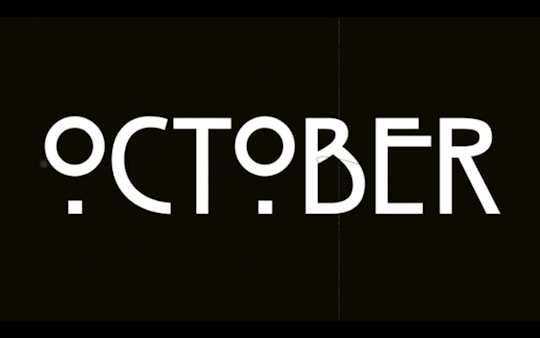
OCTOBER
PYANOPSIA
7th October
Origins: Ancient Greece
Observed by: Hellenic polytheists
Pyanopsia, or Pyanepsia, is a festival to honour Apollo, one of the most important deities, God of music, the sun, knowledge, healing, and archery - amongst other things. During the festival, two special offerings would be placed on doorways and carried to the temple. These offerings were a bean stew, and an olive branch wrapped in wool with honeys, pastries and seasonal fruits hanging from it.
REMEMBRANCE FOR LEIF EIRIKSSON
9th October
Origins: C10th CE
Observed by: Heathens, Ásatrú, Norse pagans
Remembrance for Leif and his sister Freydís Eiríksdóttir, children of Erik the Red, who are cited with being the first Norse explorers in North America.
THESMOPHORIA
12th-14th October
Origins: Ancient Greece
Observed by: Hellenic polytheists
Festival held in honour of Demeter Thesmophoros, goddess of agriculture, and her daughter Persephone, goddess of death and life, Queen of the Underworld. Celebrated primarily by women, this festival is linked with fertility, and we know very little about it due to its secretive rites. It is thought that it involved the sacrifice of pigs (although some sources say women), and abstinence.
REMEMBRANCE FOR ERIK THE RED
28th October
Origins: C9th CE
Observed by: Heathens, Ásatrú, Norse pagans
Erik the Red, probably named for the colour of his hair and beard, was the first permanent European settler in Greenland. His children were explorers too, who went to America, and although his wife converted to Christianity, Erik remained faithful to his Norse pagan gods.
SAMHAIN (HALLOWE'EN)
31st October-1st November
Origins: Gaelic - Scotland, Ireland, Isle of Man
Observed by: Celtic pagans, Neopagans, Wiccans
Pronounced SOW-in (sow rhyming with cow), Samhain was originally a harvest festival marking the beginning of winter. The day itself is the 1st November, but celebrations begin on October 31st, and this has become the accepted associated day. It's a festival of the dead, where the síthe, fae and spirits, can enter this realm from their own. Wiccans talk of a 'veil' thinning, meaning the boundary between worlds. Similar death related festivals around this time can be noted in other faiths from across the globe, and of course in the modern Hallowe'en.
WINTER NIGHTS (VETRNAETR), ÁLFABLÓT/DÍSABLÓT
31st October
Origins:
Celebrated by: Heathens, Ásatrú, Norse pagans
Winter Nights is mentioned in the Ynglinga Saga as one of the three greatest blessings of the year, the other two being Sigrblót in April, and þorrablót in late Jan/early Feb. Winter Nights is the celebration of the beginning of the winter season; Álfablót is a sacrifice to the elves, and Dísablót a sacrifice to the female spirits (dísir) and Valkyries.

NOVEMBER
REMEMBRANCE FOR SIGRID THE HAUGHTY
9th November
Origins: C9th CE
Observed by: Heathens, Ásatrú, Norse pagans
It is not actually known whether Sigrid Storråda, or Sigrid the Haughty, was an actual historical figure, an amalgamation of a few, or simply a myth. The lore goes that she was proposed to multiple times and turned down many but went on to orchestrate conflict when a potential suitor - Olaf Tryggvason, King of Norway - attempted to convert her to Christianity.

DECEMBER
REMEMBRANCE FOR EGILL SKALLAGRÍMSSON
9th December
Origins: C10th CE
Observed by: Heathens, Ásatrú, Norse pagans
Day celebrating the poet, farmer, and berserker Egill Skallagrímsson, who is recalled in The Icelandic Sagas by Snorri Sturluson. Egill is known for his many killings and escaping death by writing an epic poem after being captured when washing up on our Northumberland coastline.
SATURNALIA
17th - 23rd December
Origins: Ancient Rome
Observed by: Roman polytheists, some Hellenic
Like Yule and Lesser Dionysia, Saturnalia was the Roman winter festival celebrating the coming return of the sun and honouring the god Saturn. The standard feasting and drinking feature, and slaves would be treated as equals like Dionysia. Saturnalia is another festival cited as being picked up by Christians and used as inspiration for Christmas.
WINTER SOLSTICE (YULE/MIDWINTER)
21st December
Origins: Germanic nations, as early as C4th CE
Observed by: Norse pagans, Wiccans, Neopagans, LaVeyan Satanists, Ásatrú, Heathens, many Germanic nonpagan peoples
Yule is the midwinter festival known commonly among pagans as a time for feasting, being with loved ones, remembering ancestors, and looking forward to the return of the light and warmer days. Many pagans will celebrate Yule for more than one day, some celebrating a week either side, some for longer, up to two months, and some for twelve days afterwards. True Yule would have originally been in January for midwinter, but King Haakon the Good
moved it to coincide with the Christian celebrations in the 10th century, as told in the Ynglinga Saga.
On the 24th of December, Anglo Saxons are said to have celebrated 'Mothers Night' honouring female ancestors.
RURAL/LESSER DIONYSIA
End of December/beginning of January
Origins: Ancient Greece
Observed by: Hellenic polytheists
Smaller festival honouring the god Dionysus (Greater Dionysia took place in cities at the end of winter). Feasting, mask wearing to stop distinction between classes so that everyone could feel equal, sacrifices, parades, and phallic display were all used to celebrate.
#wheel of the year#wiccan#pagan#heathen#greek#mythology#holidays#religious holidays#pagan holidays#non-Abrahamic holidays#witch#witchcraft#witchblr#pagan wicca#polytheism#paganism#witches#witch holidays#witches holidays#pagan witch
12 notes
·
View notes
Text

Yeah so uh I’ve done some more Jesi, thoight you’d all like them together :)
#digital art#worldbuilding#after the end#ate#christian mythology#ck3#oc artwork#jesus#christo pagan#abrahamic religions#abrahamic mythology
41 notes
·
View notes
Text
When it comes to religion/spirituality, nobody has the right to tell another person how they have to practice or identify if they're not hurting anyone. Also, just because someone else's practices or beliefs don't align with yours (eg. threefold law, UPGs, approaches to reconstructing religions, interpretations of texts, rituals, who a certain deity is or how/if they exist in the world) doesn't necessarily mean it's wrong. Religion is such a broad spectrum, and I can pretty much guarantee that no two peoples' experiences with it will be exactly the same.
Share resources, have debates/discussions, learn about different perspectives, and don't fall into the stagnant mindset of my understanding and/or practice of this religion is right and everyone else is wrong. Please, It's making me so tired seeing and hearing this so often.
#religion#satanism#pagan#satanist#satan#theistic satanism#norse paganism#atheistic satanism#norse pagan#norse pantheon#paganism#norse polytheism#norse mythology#heathen#heathenry#abrahamic religions#christianity#islam
379 notes
·
View notes
Text
one thing ive learned about being a ex christian whos a poc is that white theists will talk over you any chance they get and project all their feelings about christianity onto you while ignoring how youve also been hurt by it in favor of their own feelings
#some of its due to trauma but yea across the board they do not listen to poc when they can make it about them#this includes white followers of abrahamic religions and white pagans#ex christian#exvangelical
37 notes
·
View notes
Text
"There's no Valhalla (that we can tell)
There's no Nirvana (and that's just swell)
There is no Heaven in which to dwell
But the good news is that means there is no Hell!"
-- Excerpt from "I am a Humanist" by Jim Corbett
#abrahamic religions#christianity#religion#nirvana#norse paganism#norse mythology#atheist music#atheist songs#atheism#heaven and hell#music lyrics#song lyrics
34 notes
·
View notes
Text
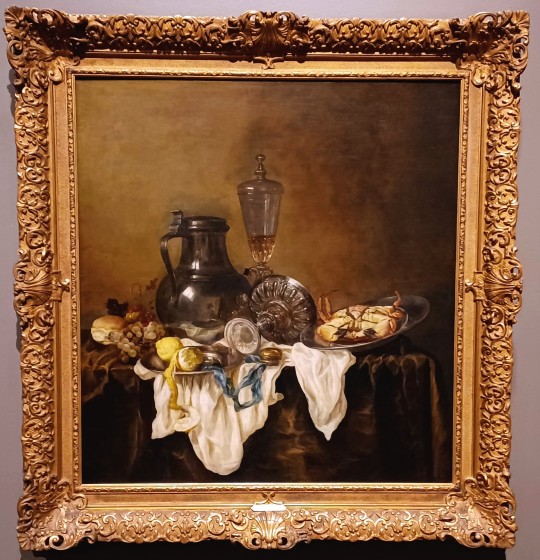
Abraham van Beyeren (Dutch, 1620-21 –1690) • Still Life with a Crab • 1654 • Cantor Arts Center, Stanford University, Stanford, California
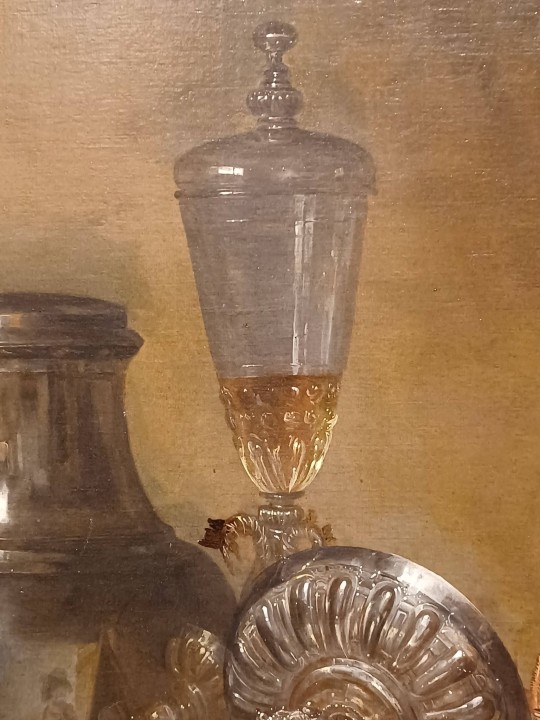
(Detail)
Photo credit: ©Pagan Sphinx Photography
#still life#art#painting#art of the still life blog#fine art#abraham van beyerens#baroque still life#dutch master#pagan sphinx photography#my photos#museum photography
13 notes
·
View notes
Note
I was thinking about Camp Jupiter and now I'm PISSED! It was RRs chance to make freaking cool adults, grown up, OP demigods, and it would all make sense because they could have had the experience that the younger Greek demigods didn't have, modern heroes with features at the level of Hercules or Perseus, but we got TEENAGERS RULING THE FREAKING SENATE, they could have even been emotional guides and supports for the 7 because they went through (roughly) similar experiences but had the maturity and experience of adulthood. It was also his chance to make amends with the pagan community but guess who he chooses to be the villain, exactly, the augur that respect, honour and worship the Gods
I will never understand why he wrote CJ the way he did.
#rick is never gonna treat the Gods with even a modicum of respecg#he 100% sees the pagan communities as a joke#our Gods aren't real to him in the slightest and are just tools for him to play with for his stories#most people view them that way so it's no surprise#but it is always just a bit tiring for me#anon asks#life answers#people don't tend to view non-Abrahamic Gods as real in the western world
16 notes
·
View notes
Text
The Christian God - The Holy Trinity (Father, Son, Holy Spirit/Ghost) - is a system. Discuss.
(Note: I'm not referring to G-d or Allah as they appear/manifest in Judaism and Islam, respectively - just in Christianity.)
#religion#abrahamic religions#christianity#theology#religious studies#did system#god#theological#did alter#paganism#pagan#religious imagery#tw religious themes
3 notes
·
View notes
Text
It's an unfortunate fact that le epic reddit atheism is in fact like, objectively correct
#hawk.txt#there is unfortunately no progressive religion#not even neo-paganism or judaism or whatever non-abrahamic religion (hinduism for instance) sounds cool#as seen by how all the examples I just listed are the underlying ideological basis of active fascist movements#though there are of course individuals of each religion who may hold progressive views#also the supernatural straight up doesn't exist#every prophet is and has been either a lunatic or a conman
3 notes
·
View notes
Text
Another of his astonishingly silly comments needs to be examined: I mean that wise saying of his, to the effect that, "We who are alive and persevere shall not precede those who are asleep when the Lord comes; for the Lord himself will descend from heaven with a shout, with the voice of an archangel; and the trumpet of God shall sound, and those who have died in Christ shall rise first; then we who are alive shall be caught up together with them in a cloud to meet the Lord in the air; and so we shall be forever with the Lord."
Indeed—there is something here that reaches up to heaven: the magnitude of this lie. When told to dumb bears, to silly frogs and geese—they bellow or croak or quack with delight to hear of the bodies of men flying through the air like birds or being carried about on clouds. This belief is quackery of the first rank: that the weight of our mortal flesh should behave as· though it were of the nature of winged birds and could navigate the winds as easily as ships cross the sea, using clouds for a chariot! Even if such a thing could happen, it would be a violation of nature and hence completely unfitting.
For the nature which is begotten in all things from the beginning also assigns to those things a certain station and rank in the order of the universe the sea for creatures that thrive in water; the land for creatures who thrive on ground; the air for the creatures who have wings; the reaches of the heavens for the celestial bodies. Move one creature from its appointed place to another sphere and it will die away in its strange abode. "You can't take a fish out of water," for it will surely die on the dry land. Just the same, you can't hope to make land animals creatures of the sea: they will drown. A bird will die if it is deprived of its habitat in the air, and you cannot make a heavenly body an earthly one.
The divine and active logos [word] of God has never tampered with the nature of things and no god ever shall, even though the power of God can affect the fortunes of created things. God does 'not work contrary to nature: he does not flaunt his ability but heeds the suitability of things [to their environment, in order to] preserve the natural order. Even if he could do so, God would not cause ships to sail across the continents or cause farmers to cultivate the sea. By the same token, he does not use his power to make evildoing an act of goodness nor turn an act of charity into an evil deed. He does not turn our arms into wings and he does not place the earth above the stars. Therefore, a reasonable man can only conclude that it is idiotic to say that "Men will. be caught up ... in the air."
And there is more to Paul's lying: He very clearly says, "We who are alive." For it is now three hundred years since he said this and nobody—not Paul and not anyone else—has been caught up in the air. It is high time to let Paul's confusions rest in peace.
— Porphyry, Against the Christians
#pagan#paganism#abrahamic religions#polytheism#apologetics#theology#christianity#neoplatonism#quotes#porphyry
8 notes
·
View notes
Text
Allah is not a benevolent God, regardless of what the West might tell you. Allah is neither Ar-Rahman, the Merciful, nor Ar-Rahim, the Most Glorious. He is cold and distant. I begged him to forgive but he shunned me away. I begged him to understand but he would not. I begged and begged and begged but all I got was silence. But I must thank him. Because when HIS silence engulfed me, the Older, Wiser and more Merciful Gods' voice came through clear and sound. He was nothing but an animal blocking the road for me. When my pleads shooed him away, I could finally walk. I was finally free. I thank you, alright. Consider this the last thing I say to you, Allah 'akbar li'anah takhalaa eaniy. God is great, because he has abandoned me.
#ex muslim#aphrodite deity#aphrodite worship#hellenic pagan#hellenic polytheism#hellenic polytheist#hellenic paganism#helpol#theoi worship#theoi#tw: abrahamic religion#tw: religion#tw: bitterness#tw: anger
82 notes
·
View notes
Text
Much shit can be said about me, but “did not live up to her talk” is not one of them.
#Strig IRL#will delete#I may have casually picked some office drama bc idk how they're allowed but somebody was like "HAVE A PICTURE OF JESUS BC /EASTER/'#and I was like....you know what I'ma leave a note reminding y'all that spring festivals are inherently pagan#spring festivals existed thousands of years before abrahamism and like. I appreciate ur enthusiasm but you did not corner this market.#you guys talk and it's like. I'm ten years old and I DISCOVERED 80's music. No. You didn't. It was there decades before you.#You do not and never will get a gold star for stealing other people's shit. This is the ted talk.#I also feel like if anyone says anything I can be like my dude......you are verging so close to lawsuit territory. quit while you're ahead.
5 notes
·
View notes
Photo

there is more depth and complexity in priam pleading with achilles than there is in the entire bible
#i once wrote a whole essay about it#how it represents a unique pagan perspective on forgiveness#but really christians are so arrogant sometimes#lmao at least the characters of the iliad and the odyssey for that matter#are actually characters#if you asked me about any character i could tell you about them#who they are what they are like what their goals are and so on#they are multifaceted and full of internal and external struggles and undergo character development#and even if this characterization of homeric epics was accurate#and i maintain it's not#but even if it was#we still have all the greek tragedies#which are again famous for their depth and complexity#christians stop being arrogant and develop some nuance challenge#lmao#how is the binding of isaac psychologically complex anyway?#like lol abraham doesn't even seem to hesitate at all#there is no evidence of internal psychological struggle#so i'd like to know what op is talking about#lol what is the ever abiding question of this tale?#the iliad on the other hand raises questions about#glory war mortality friendship love honor fate and so on#i could write essays about the love of achilles and patroclus#or the rivalry between achilles and hector#or as i mentioned the scene between achilles and priam#or the anguish of achilles#lmao not interesting or vital my ass#and don't even get me started on the odyssey#also glory and honor and revenge and duty and returning home#are all much more salient motivating factors than gold or women
6 notes
·
View notes
Text
How do you guys approach the "Satan is part of Christianity and, therefore, you're a Christian" and "You need to reference the bible and acknowledge and follow it because Satan is a solely Abrahamic concept" type arguments?
Is it true? Are we Christian? Should we need to strictly follow and adhere to Christian mythology as Satanists? Opinions? Thoughts?
#religion#satanism#satanist#pagan#satan#theistic satanism#agnostic satanism#christianity#christian#christianism#christ#bible#the bible#abrahamic religion#paganism#theism#theist#theistic luciferianism#satanic#satanic worship#satan worship#devil worship
48 notes
·
View notes